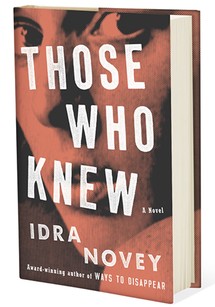Those Who Knew
By Idra Novey
256 pages;
Viking
Those Who Knew (Viking) is a literary takedown of the moral dangers of dictator-style leadership hiding behind the rhetoric of "values." By turns brutal, funny, and tender, the novel masterfully intermingles scripts, letters, and traditional prose to create a sleek bullet of a book whose target is absolute power that corrupts absolutely. The novel encompasses a wide range of characters: Olga's an ex-radical wryly facing the indignities of aging and loss; Lena and Cristina are single mothers uneasily united by their shared bond with Victor, a powerful and predatory senator; and Freddy, Victor's younger brother, is a playwright secretly satirizing the so-called Truth and Justice Party (TJP).
"In the aging port city of an island nation near the start of the new millennium," the TJP has replaced the roundly criticized Cato regime that "disappeared" dissidents during the "Terrible Years." These include Olga's murdered lover, to whom she composes Kafkaesque letters in her Marx-filled bookstore, which doubles as a pot dispensary for the "pale" tourists visiting from the "northern" country.
As the story unfolds, the women come into their own in their attempts to topple patriarchal rule—especially Lena, the outlier in a family that maintains a stubborn allegiance to the inhumane government policies that lined their pockets. Novey makes a striking point about "the mistrust that is the legacy of a divide, how much safer it felt to withhold anything close to trust in a country as bitterly divided as her own." During what are arguably our own Terrible Years, with truth and justice blurred nearly every day, Those Who Knew is as urgent as a ticking time bomb.
— Emily Rapp Black


